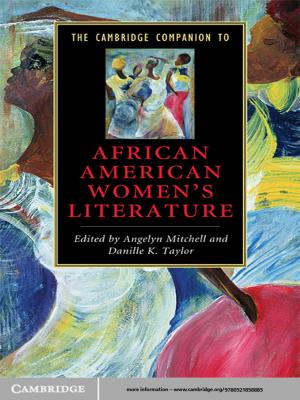The Afterlives of Eighteenth-Century Fiction
Fiction & Literature, Literary Theory & Criticism, British| Author: | ISBN: | 9781316288504 | |
| Publisher: | Cambridge University Press | Publication: | September 29, 2015 |
| Imprint: | Cambridge University Press | Language: | English |
| Author: | |
| ISBN: | 9781316288504 |
| Publisher: | Cambridge University Press |
| Publication: | September 29, 2015 |
| Imprint: | Cambridge University Press |
| Language: | English |
The Afterlives of Eighteenth-Century Fiction probes the adaptation and appropriation of a wide range of canonical and lesser-known British and Irish novels in the long eighteenth century, from the period of Daniel Defoe and Eliza Haywood through to that of Jane Austen and Walter Scott. Major authors, including Jonathan Swift, Samuel Richardson, Henry Fielding and Laurence Sterne, are discussed alongside writers such as Sarah Fielding and Ann Radcliffe, whose literary significance is now increasingly being recognised. By uncovering this neglected aspect of the reception of eighteenth-century fiction, this new collection contributes to developing our understanding of the form of the early novel, its place in a broader culture of entertainment then and now, and its interactions with a host of other genres and media, including theatre, opera, poetry, print caricatures and film.
The Afterlives of Eighteenth-Century Fiction probes the adaptation and appropriation of a wide range of canonical and lesser-known British and Irish novels in the long eighteenth century, from the period of Daniel Defoe and Eliza Haywood through to that of Jane Austen and Walter Scott. Major authors, including Jonathan Swift, Samuel Richardson, Henry Fielding and Laurence Sterne, are discussed alongside writers such as Sarah Fielding and Ann Radcliffe, whose literary significance is now increasingly being recognised. By uncovering this neglected aspect of the reception of eighteenth-century fiction, this new collection contributes to developing our understanding of the form of the early novel, its place in a broader culture of entertainment then and now, and its interactions with a host of other genres and media, including theatre, opera, poetry, print caricatures and film.















